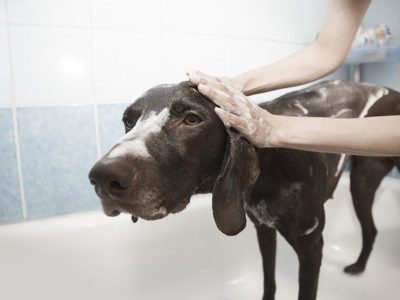7 Tips on How to Start a Successful Dog Walking Business
Running your own dog walking business will allow you to work with dogs on a daily basis while providing an essential service for countless owners. Owners can’t watch their dogs 24 hours a day, seven days a week. Many owners have jobs that require them to leave their homes for eight or more hours a […] Read More
Veterinary Radiology: A Newcomer’s Guide to This Specialized Profession
Radiology isn’t limited to the field of human medicine; it encompasses animal medicine as well. There are veterinary radiologists who specialize in radiology-related diagnostics for animals. Like all veterinarians, these specialists hold a Doctorate of Veterinary Medicine (DVM). Veterinary radiologists, however, are specifically trained to interpret diagnostic images in animals. In this post, you’ll learn […] Read More
What Is a Doctorate of Veterinary Medicine (DVM)?
To become a licensed veterinarian or a veterinary specialist, you’ll need to complete a specific type of higher education program. Known as a Doctor of Veterinary Medicine or Doctorate of Veterinary Medicine (DVM) program, it’s required for veterinary licensure in the United States as well as many other countries. By completing the program and earning […] Read More
The Pros and Cons of Starting Your Own Dog Grooming Business
Are you thinking about starting a dog grooming business? If so, you should weigh its pros and cons. Like with all businesses, there are both advantages and disadvantages to starting your own dog grooming business. Neglecting to perform due diligence could lead you down the wrong career path. Here are some of the top and […] Read More
Choosing a Major When Aspiring to Become a Veterinarian
If you have aspirations of becoming a veterinarian, you might be wondering what subject you should major in. You can’t just enroll in a Doctorate of Veterinary Medicine (DVM) program immediately after graduating high school. DVM programs are extremely competitive, so they selective choose candidates based on their education. By earning a degree in the […] Read More
How Veterinarians Work to Prevent Foodborne Illness
Foodborne illness is a serious and widespread health problem. According to the U.S. Centers for Disease Control and Prevention (CDC), it’s responsible for approximately 3,000 deaths in the United States annually. In any given year, in fact, about one in six Americans will catch some type of infectious illness from the consumption of food. While […] Read More
8 Essential Skills All Veterinarians Need to Succeed
Working as a veterinarian requires a certain set of skills. As a veterinarian, you’ll be responsible for diagnosing, treating and preventing adverse medical conditions in animals. It’s a rewarding profession that allows you to help animals in need. To succeed, though, you’ll need to learn several skills. #1) Teamwork Veterinarians must exhibit strong teamwork skills […] Read More
How to Get Started as a Veterinary Receptionist
You don’t need a Doctorate of Veterinary of Medicine (DVM) to land a job in the veterinary medicine industry. While licensed veterinarians require a DVM, there are entry-level positions available, such as receptionists, with less-stringent requirements. As a veterinary receptionist, you’ll provide essential services for a veterinary clinic while gaining real-world experience in the process. […] Read More
What Is a Veterinary Nutritionist?
Animals require a healthy diet just like their human counterparts. It’s essential for protecting them from chronic disease and adverse health conditions that could otherwise lower their quality of life. Different animals, however, have different dietary requirements, which is why owners often the expertise of a veterinary nutritionist. If an owner is concerned about the […] Read More
7 Facts About Veterinary Technicians
Also known as simply as a vet tech, a veterinary technician is an animal care professional who assists licensed veterinarians with various activities. Among other things, they help licensed veterinarians perform evaluations, check vitals, collect blood samples, administer medication and treat physical injuries of their clients’ animals. While you may recall reading or hearing about […] Read More










